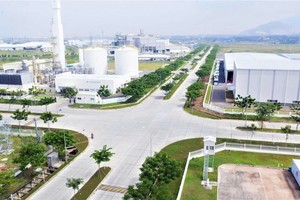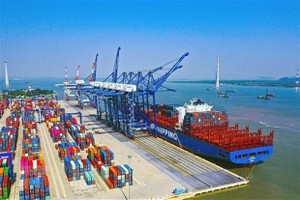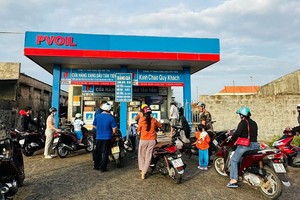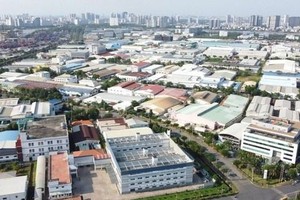
Resident Le Thu Tra in Thanh Loc Ward of HCMC’s District 12 showed her concern because she has been working for a long time and am about to retire. Two of her children are university students. Now, food prices are skyrocketing, and tuition fees are also rising. Now, the electricity price is going up. She moaned as each item increase adds up, creating financial pressure. The electricity price hike makes people think that the power sector's losses are being passed onto them.
Nguyen Tu, an office worker in Tam Phu Ward in Thu Duc City, stated that while a 4.8 percent increase may seem small, it impacts the entire economy because everything else tends to go up in response. He believed that raising electricity prices now is unreasonable, especially as many people are still recovering from the damage caused by the recent super typhoon Yagi.
Manufacturers, such as Toan Phat Irradiation Company in Phu An Thanh Industrial Park, shares concerns about rising energy costs. This company, which specializes in irradiating dragon fruit and seafood for export, consumes a significant amount of electricity in its operations."
Company's production manager Vu Thuong Hien noted that the increase in electricity prices would significantly impact production costs. The company will have to pay an additional nearly VND10 million (US$402) per month for electricity alone. At a time when orders have not yet recovered and the market faces many difficulties, the electricity price hike forces businesses to find ways to cover costs.
Manager Hien explained that businesses cannot simply increase their selling prices to maintain profitability, as this could lead to a loss of customers. While reducing costs and optimizing production processes are essential, implementing these changes cannot be done overnight.
Similarly, Deputy General Director Bach Hong Long of Garment 10 Corporation said that the company would have to pay an additional nearly VND15 million per month. Generally, when electricity prices increase, many other prices follow.
The Vietnam Textile and Apparel Association views the end-of-year electricity price increase as a significant challenge for businesses, which are already facing intense market competition and a recent recovery in orders.
In response to the increasing costs of production, including electricity prices, the textile and garment industry has identified solutions to achieve its development goals, one of which is investing in rooftop solar power systems. Several companies, such as May Viet Tien and May 10, have already implemented this strategy to mitigate the impact of rising electricity costs. However, it's important to note that rooftop solar power cannot completely replace the national grid for industrial production due to its reliance on weather conditions.
Analyzing EVN's recent move to increase electricity prices, Mr. Ngo Duc Lam, former Deputy Director of the Institute of Energy, said that accelerating new power source projects is a fundamental solution for the electricity industry, instead of using electricity price increases to deal with EVN's losses.
Furthermore, it is essential for electricity prices to remain stable in order to reduce negative effects on macroeconomic stability and social security. Unlike other commodities such as gasoline and oil, which are directly influenced by global market prices, electricity prices require timely adjustments.
Economist Ngo Tri Long, who previously served as the Deputy Director of the Institute for Price Market Research within the Ministry of Finance, asserted that the industrial sector heavily reliant on electricity is quick to feel the effects of rising electricity prices. He emphasizes the necessity for an independent body tasked with evaluating and regulating the input costs of EVN. This measure is essential to guarantee that any decisions regarding electricity price increases are conducted transparently, publicly, and in a manner that balances the interests of all stakeholders, particularly those of electricity consumers.
Another expert said that with the country’s annual economic growth rate of around 7 percent for the past time, the demand for electricity is very huge. For a stable energy supply for the economy, the electricity industry must promptly implement comprehensive electricity planning. Additionally, it is crucial to expedite the grid connection process for renewable energy projects and ensure full payment for electricity purchases from these projects. This will help prevent wastage and increase timely energy supply.
























